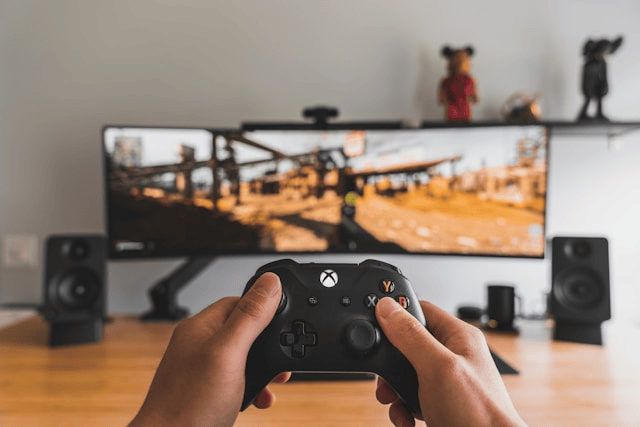For years, video games have carried a reputation of being mindless, even harmful. Critics claim they lead to violence, addiction, or social isolation. But modern research tells a very different story. In reality, the benefits of video games particularly on the brain are extensive and scientifically supported.
Far from being a waste of time, video games can actually enhance cognitive abilities, improve emotional well-being, and foster social connection. Whether you’re solving puzzles, navigating virtual worlds, or teaming up with others in online missions, you’re doing more than just playing you’re training your brain.
Here’s why video games are good for your brain, and how they can make you sharper, more adaptable, and mentally healthier.
Breaking the Stereotypes
Let’s start by addressing the elephant in the room: the stigma around gaming. For decades, mainstream media portrayed gamers as lazy, antisocial, or disconnected from reality. However, this perspective is increasingly outdated.
Recent studies have shown a strong link between video games and brain function, especially in areas like memory, attention, and problem-solving. Professional fields such as healthcare, education, and even military training now use video game simulations to improve performance and decision-making under pressure.
Cognitive Benefits of Gaming
One of the most studied areas of gaming’s impact is on cognitive development. Strategic games, action games, and puzzle-based games all require the brain to process information quickly and efficiently.
1. Improved Memory
Many games especially those with complex environments or multiple objectives help strengthen both working and long-term memory. If you’ve ever played an open-world game, you know the mental effort it takes to remember objectives, maps, and character relationships. Researchers have found that playing these types of games can improve memory retention and recall.
2. Enhanced Attention and Focus
Fast-paced action games require players to pay close attention to changing environments, track multiple objects, and make rapid decisions. This sharpens visual attention and processing speed, skills that transfer well into real-life multitasking and decision-making.
3. Problem-Solving and Strategy
From resource management in survival games to logical thinking in puzzle platforms, players are constantly required to assess situations, plan outcomes, and adapt strategies. These are essential executive function skills that benefit learners, professionals, and anyone navigating complex problems.
Emotional and Psychological Benefits
Beyond mental sharpness, video games and mental health are becoming an increasingly important topic. With the right approach, games can offer meaningful emotional benefits.
1. Stress Relief
Gaming can act as a form of digital escapism, providing a break from real-world stressors. Engaging in gameplay especially when it’s immersive can activate the brain’s reward system and lower cortisol levels, helping players relax and unwind.
2. Mood Enhancement
Games are designed to provide feedback, reward effort, and create a sense of accomplishment. This regular dose of positive reinforcement triggers dopamine release, improving mood and motivation. It’s no surprise that many people use gaming as a tool to manage anxiety or depression.
3. Emotional Resilience
Overcoming in-game challenges builds persistence and patience. Players often learn to deal with failure, try again, and develop resilience skills that are incredibly valuable outside the gaming world.
Social and Communication Skills
Despite the stereotype of the “lonely gamer,” many games are highly social. From MMOs to co-op team shooters, multiplayer games encourage communication, coordination, and teamwork.
1. Team Building and Leadership
In team-based games, players must delegate tasks, make group decisions, and communicate effectively to succeed. These are the same skills that apply to classrooms, sports teams, and workplaces.
2. Building Friendships
Online gaming communities often become sources of long-term friendships. Platforms like Discord or in-game chat help players build bonds across borders, promoting cultural understanding and empathy.
3. Language Development
Many non-native English speakers improve their language skills through gaming. Exposure to text, dialogue, and real-time chat encourages language learning in context, which is often more effective than textbook instruction.
Educational and Developmental Gains
The educational potential of gaming is enormous. Teachers and parents are increasingly using games as learning tools.
1. Educational Games
Games like Minecraft: Education Edition, Kerbal Space Program, or Brain Age teach players about physics, math, coding, or history in a hands-on, engaging format. The result? Higher engagement and better retention.
2. Gamification in Learning
The principles of video game design challenge, reward, feedback are being integrated into classrooms through gamified learning systems. These help keep students motivated and focused on goals.
3. Therapeutic Applications
Clinics and therapists are now using specially designed games to treat ADHD, PTSD, and even Alzheimer’s. These games help improve attention span, emotional regulation, and cognitive flexibility.
The Neuroscience Behind It All
What happens in the brain when you game? Quite a bit.
Functional MRI scans have shown that gaming stimulates various brain regions, including those responsible for memory, motor skills, attention, and strategic planning. Some research suggests that playing certain types of games increases gray matter volume in areas associated with spatial navigation and decision-making.
In short, gaming doesn’t just affect how your brain works it can reshape it entirely.
Caveats and Healthy Gaming Habits
Of course, no discussion about gaming is complete without acknowledging potential downsides. Excessive gaming can lead to negative outcomes like addiction, sleep disturbances, or social withdrawal.
That’s why it’s important to maintain healthy gaming habits:
-
Set time limits
-
Choose age-appropriate and meaningful games
-
Balance screen time with physical activity and social interaction
-
Be mindful of in-game purchases and online safety
When approached with balance, the cognitive benefits of gaming far outweigh the risks.
Final Thoughts: Games That Grow Your Brain
Whether you’re playing to unwind, to challenge yourself, or to connect with others, video games can be an incredibly positive influence on your brain. They sharpen memory, improve focus, reduce stress, and teach valuable life skills all while being engaging and enjoyable. So next time someone says gaming is a waste of time, you can confidently tell them about the many scientifically supported benefits of video games.









